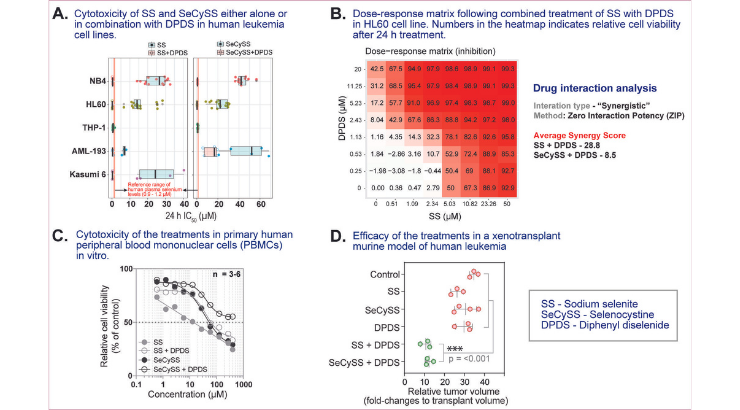Novel Therapeutic Approach for the Treatment of Cancer
ID# 2020-5135
Technology Summary
Cystine/glutamate antiporter, SLC7A11, plays a key role in cellular cystine acquisition and redox homeostasis. Many cancer types, especially those resistant to chemo or radiotherapy, exhibit upregulated SLC7A11 expression. However, high levels ofSLC7A11 overexpression in cancer cells results in rapid cell death. Due to this balance,SLC7A11 has been suggested to be a possible target for therapeutic intervention. Researchers have discovered a novel therapeutic strategy to drive overexpression of SLC7A11 in cancer cells. The researcher identified a suite of small molecule compounds that, when combined with sodium selenite or selenocystine, induces SLC7A11 expression and are cytotoxic to cancer cell types independent of cell origin, P53 status, or mutational load. Lead compound is diphenyl diselenide. While sodium selenite and selenocystine have previously been suggested to be potential therapies for cancer, the researcher determined that co-administration of diphenyl diselenide has an unexpected synergistic effect.
Application & Market Utility
The novel combination of diphenyl diselenide with sodium selenite or selenocystine may represent a new therapy option for reducing tumor growth and increasing the rate of cell cancer death. Additional compounds identified may represent additional therapeutic leads and/or starting points for small molecule optimization.
Next Steps
The researchers are seeking an industry partner or licensee to advance this pre-clinical technology.

